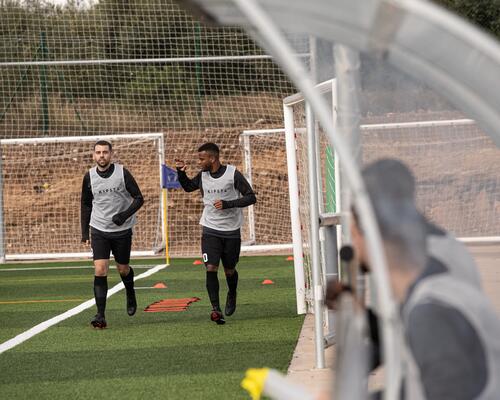When the team has won
You’re in the dressing and you hear someone say, “I didn’t score” or “I didn’t have a good game”.
Even when your team wins, some players can be in a sulk because they haven’t achieved what they wanted to. With this in mind, it's pretty clear where they stand: they’re putting their own interests ahead of those of the team.
As a coach, you need to watch out for this type of behaviour so that it doesn’t affect team morale and cause irritation among the rest of the players.
“I didn’t come on.”
If a player’s not getting much playing time, then they’re not going to be that happy, which stands to reason, because everyone wants to play.
So how do you handle reactions like that when you’re a coach? The best thing to do is tell the player that it’s perfectly OK for them to be unhappy but that there will come a time when you’re going to need them, if not now, then in another game, perhaps the very next one. The trick is to get them involved and to make them feel a part of the team so they can share in its success.
You have to choose your words carefully, because there’s nothing worse than letting a player mull things over for too long.
“I had a great game.”
Then there are the players who excel on the pitch, outperform everyone else, and make sure everyone knows it in the dressing room.
So, how to handle them? Tell them it’s great, while gently reminding them that the season is 36 matches long, that there’s another game coming up next week and that they have to put in another good performance then.
Make sure they don’t get too big for their boots after a win. It’s vital they don’t get carried away.
It’s vital to put wins into perspective too. It’s good to celebrate them but with moderation. If you’re going for the title and you’re six points clear, make sure you don’t take your foot off the accelerator and celebrate too early.
As you can see, egos are at their biggest after a win.






